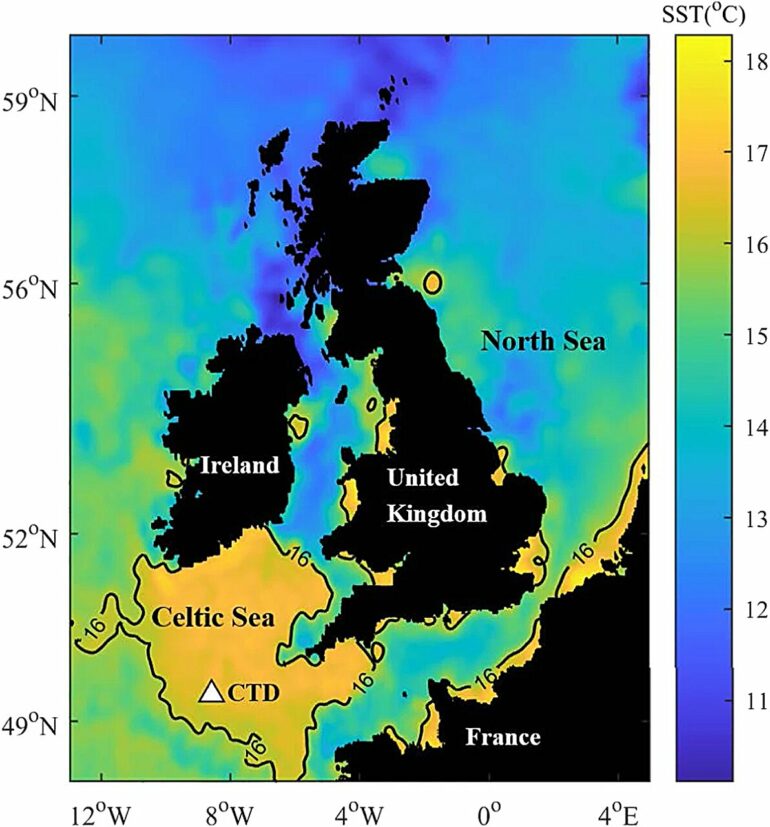New research led by oceanographers from the School of Ocean Sciences at Bangor University has shown for the first time the important role of the ‘mixing down’ of oxygen in maintaining healthy conditions in the deep waters around the UK and elsewhere.
The research, published in Nature Communications, demonstrates that the mixing down of oxygen by summer storms is an important process in topping up the deep water oxygen levels in summer, and in keeping these seas healthy.
“There is growing concern for the health of our coastal oceans as the climate warms because warmer water holds less oxygen. Living creatures in the ocean are reliant on oxygen to survive in the same way as animals on land are. Oxygen is also used up as rotting matter decomposes in the depths of the ocean. This creates a summer oxygen deficit in the deep seas around the UK. Unfortunately, as our climate warms, this deficit is forecast to grow,” lead author Professor Tom Rippeth of Bangor University explains.
The formation of stratification in the summer in the deeper water around the UK isolates the deep water from the atmosphere, which is the main source of oxygen.
The research team, from the School of Ocean Sciences at Bangor University, the University of Liverpool and the National Oceanography Center, used novel new techniques developed at Bangor University to estimate oxygen fluxes in the ocean. These new results show that the mixing down of oxygen by summer storms can slow the development of the deepwater oxygen deficit by as much as 50%.
These new results also have important implications for the proposed mass development of floating wind farms, in places like the Celtic Sea and northern North Sea, in pursuance of NetZero.
“The tidal flow passed from the proposed floating wind turbines will generate a turbulent wake which will mix down oxygen in the summer. This positive impact will improve ocean health. However, this new research highlights the need for the potential impacts of this modified mixing to be considered in the design of turbine foundations and in the spatial planning of new wind farms,” says Professor Rippeth.
The observations were collected as part of the United Kingdom (UK) Natural Environment Research Council (NERC) Carbon and Nutrient Dynamics and Fluxes over Shelf Systems (CaNDyFloSS) project, which forms part of the Shelf Sea Biogeochemistry research program.
More information:
Tom Rippeth et al, The deepwater oxygen deficit in stratified shallow seas is mediated by diapycnal mixing, Nature Communications (2024). DOI: 10.1038/s41467-024-47548-2
Citation:
Oceanographers uncover the vital role of mixing down of oxygen in sustaining deep sea health (2024, April 12)



